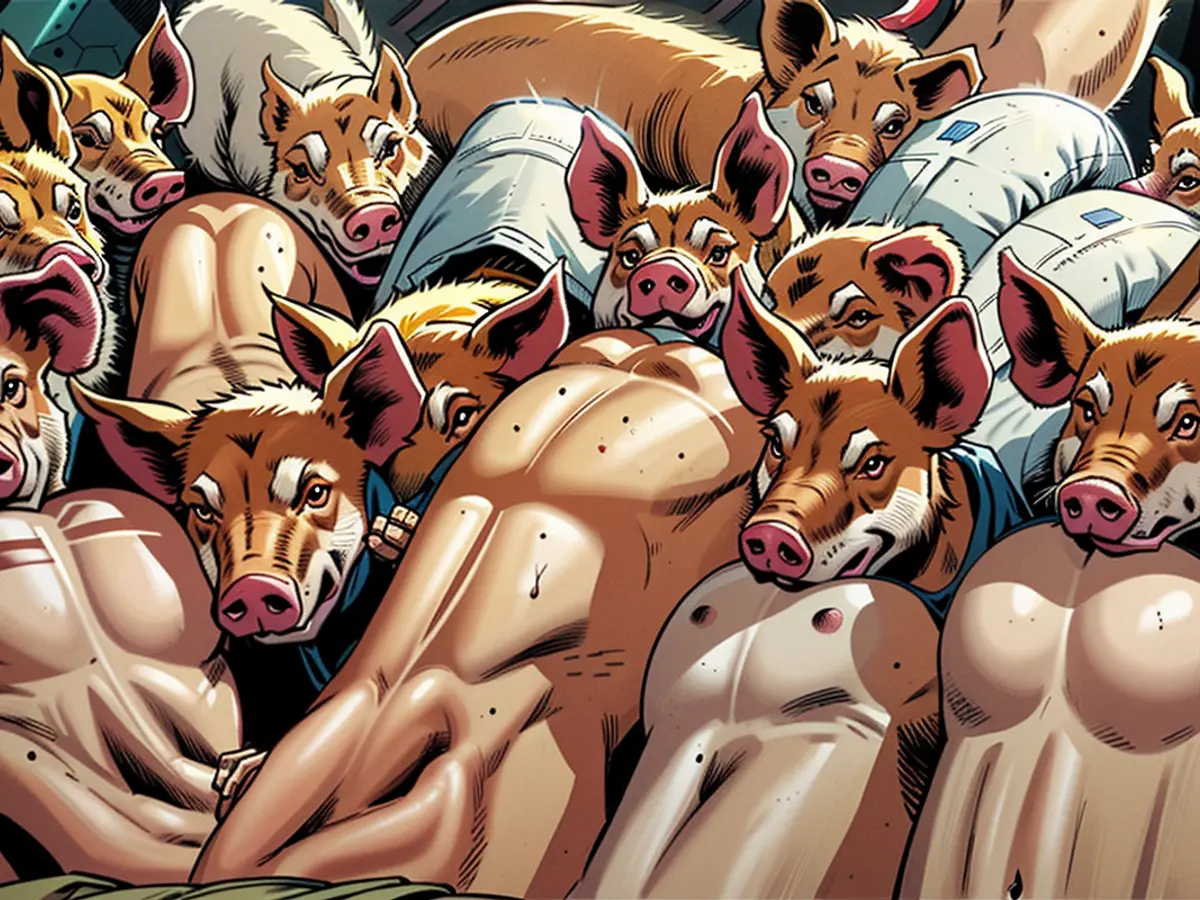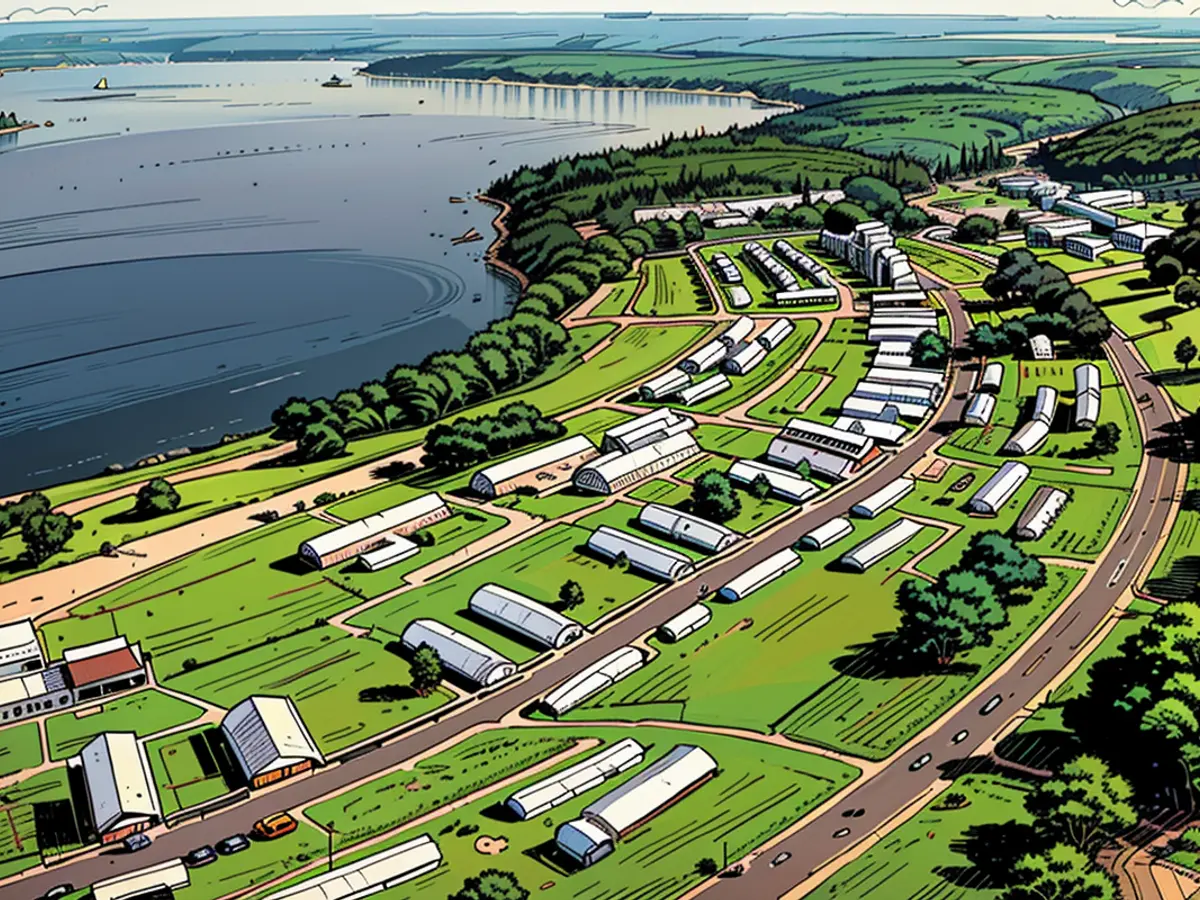- Swine fever: More than 100 kilometres of fence
African Swine Fever has broken out in South Hesse - and the fight against the disease continues. The viral disease is still causing great concern among farmers and hunters. In the fight against the spread of African Swine Fever, more than 100 kilometers of electric fences have been set up so far. They are intended to prevent wild boars from spreading the pathogens. Several farms have already been affected - just last Thursday, 1,800 domestic pigs were killed and disposed of by a specialized operation.
What is the situation in Hesse?
African Swine Fever (ASF) was first detected in a wild boar in the district of Groß-Gerau in mid-June. There is a restricted zone and a buffer zone around the outbreak area. The viral disease is not curable for wild and domestic pigs and runs almost always fatally. According to the Federal Ministry of Agriculture, it is harmless to humans and other animal species, even if the meat of infected animals is consumed. So far, eight farms with pig keeping have been affected, all in the district of Groß-Gerau. The animals had to be killed.
What happens to the killed animals?
According to the Ministry of Agriculture, the dead domestic pigs are taken to a specialized company for further processing of animal by-products, such as those that arise during slaughtering, in Lampertheim (district of Bergstraße). They are not burned there, but heated at a temperature of 133 degrees and a pressure of three bar for at least 20 minutes. This is to ensure that all ASF viruses are killed.
In this process, the carcasses turn into a kind of liquid pulp. According to the information, the substances from it are partially further processed as fuel or biodiesel.
How long are the protective fences now?
In the fight against the spread of African Swine Fever, around 115 kilometers of electric fences have been set up in South Hesse so far. "In the next few days, the setup of another 20 kilometers of tactical electric fences is planned," the Ministry of Agriculture announced. In this case, it is mainly about closing gaps in the fencing. The costs for the protective fences are currently being covered by the state.
Why must the fence be set up in the fight against the disease?
"The fencing is urgently necessary to locally contain the disease," explained a spokesman for the state hunting association. The mobile electric fences would prevent possibly already infected wild boar from wandering to other regions. A fixed wild game fence with anti-tunneling protection is already in planning. "However, this can only be set up when the core area is exactly known," the spokesman explained. "New carcass findings can still shift the borders of this area." The Ministry of Agriculture also explained that it is still too early to make a statement about where the fixed fence will be.
What are the disadvantages of a fence?
The state hunting association sees an increasing "wiring of the landscape" in principle as "very critical". Fences along highways or railway tracks restrict the migration movements of wild animals. This leads to, for example, isolated populations of red deer and thus to a genetic impoverishment. "However, in the current situation, disease control has the highest priority, and therefore both mobile electric fences and the planned fixed fences are indispensable to contain and hopefully soon control the disease," said the spokesman.
What support do affected farmers receive?
If businesses suffer losses due to African swine fever, compensation is paid, with half covered by the Animal Disease Fund and the other half by the state of Hesse. The amount is based on the value of the dead animals, with maximum limits. Additionally, in certain cases, the Animal Disease Fund provides voluntary contributions for cleaning and disinfection. Since measures to contain African swine fever affect not only pig farmers, other livestock farmers can also claim compensation for financial losses.
The African Swine Fever outbreak has primarily affected farms in the district of Groß-Gerau in South Hesse. In the efforts to control the spread of the disease, additional 20 kilometers of electric fences are planned to be set up in South Hessen in the near future.








